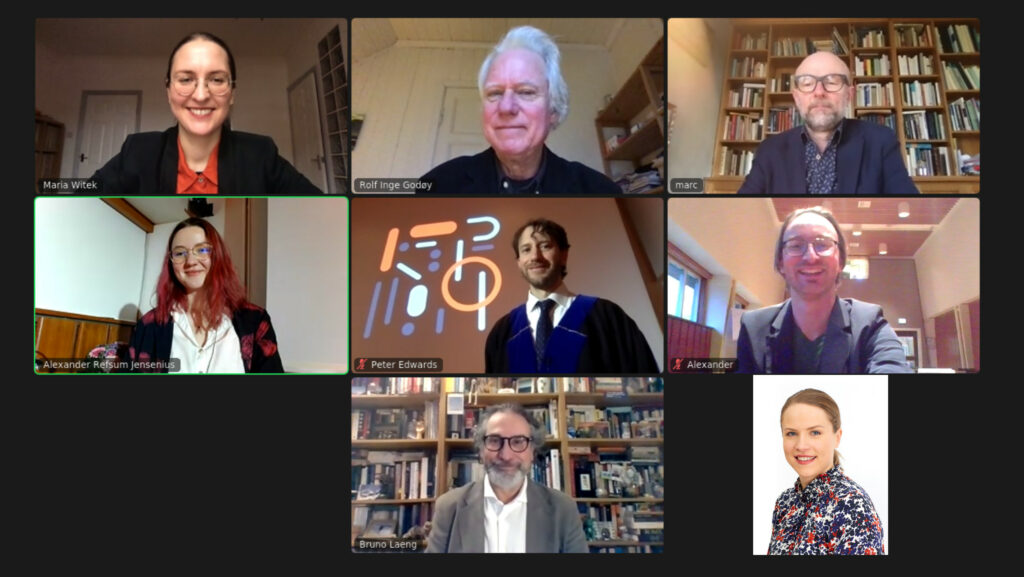I am happy to announce that Agata Zelechowska yesterday successfully defended her PhD dissertation during a public disputation. The dissertation is titled Irresistible Movement: The Role of Musical Sound, Individual Differences and Listening Context in Movement Responses to Music and has been carried out as part of my MICRO project at RITMO.

The dissertation is composed of five papers and an extended introduction. The abstract reads:
This dissertation examines the phenomenon of spontaneous movement responses to music. It attempts to grasp and illustrate the complexity of this behaviour by viewing it from different perspectives. Unlike most previous studies on music and body movement, this dissertation places the focus on barely visible manifestations of movement, such as those that may occur when listening to music while standing still. The point of departure is a reflection on movement responses to music and why such responses are considered universal among humans. This is followed by a discussion on the different approaches to studying how music ‘inspires’ movement, and an overview of the different factors that can potentially contribute to the emergence of movement responses to music. The first goal of the empirical research was to verify the common conception that ‘music makes us move’ and examine whether such movement responses can be involuntary. Three of the five included papers show that music can, indeed, make people move, even when they try to stand as still as possible. The second goal is to explore different factors that contribute to movement responses to music. Throughout the included papers, several topics are examined, including rhythmic complexity, tempo, music genres, individual differences and playback systems. The theoretical chapters show how these topics fit into three broader components of the music experience: music, listener and context. Overall, the results suggest that several factors seem to increase movement responses to music: the clear underlying pulse in the sound stimuli, the rhythmic complexity, a tempo of around 120 beats per minute, listening on headphones rather than speakers and high empathy of the listener. All in all, this dissertation contributes to bridging several gaps in the literature on music-related body movement. It also broadens the perspective on why, how and when music moves us.
Congratulations to Agata on the dissertation and the defense!
